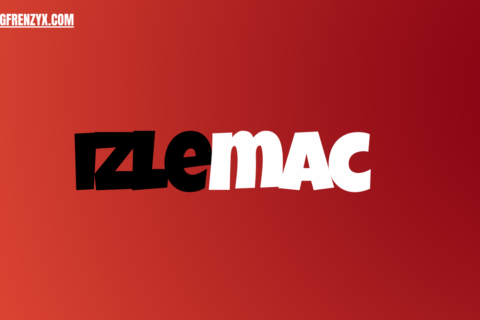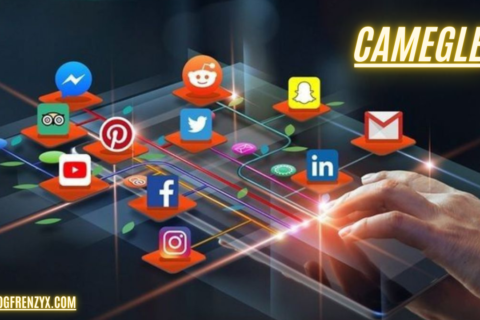Introduction
GitHub.io games refer to a collection of web-based games hosted on GitHub Pages, which allows developers to showcase their projects and share interactive gaming experiences with users. These games often include various genres such as action, puzzle, and multiplayer, and are built using web technologies like HTML, CSS, and JavaScript. The platform serves as an open-source environment where developers can collaborate, contribute, and improve their games while providing players with easy access to play directly in their browsers. This community-driven approach not only fosters creativity but also helps users learn coding and game development skills through hands-on experience.
What Are GitHub.io Games?
GitHub.io games refer to browser-based games hosted on GitHub Pages, a static web hosting service provided by GitHub. Developers use GitHub Pages to deploy their open-source projects, including games, directly to the web. These games are accessible through any web browser and typically require no downloads, offering instant access to fun, interactive experiences.
GitHub.io games stand out because they leverage open-source code, meaning that anyone can access the game’s source code, modify it, or contribute to its development. This fosters a culture of collaboration and learning, allowing developers to refine their skills, experiment with new ideas, and contribute to the broader gaming community.
The Benefits of Browser-Based Gaming
GitHub.io games have gained popularity for several reasons, particularly due to the accessibility and simplicity of browser-based gaming. Here are some key benefits that make these games stand out:
- Instant Access: No need to download or install large files. Players can jump straight into the action with just a few clicks.
- Cross-Platform Compatibility: Since these games run in a browser, they work across various devices, including desktops, laptops, and even mobile phones.
- Open-Source Collaboration: Developers can collaborate on projects, fix bugs, add new features, and share their work with the community.
- Low System Requirements: Unlike high-end PC or console games, GitHub.io games typically don’t require powerful hardware, making them accessible to users with older devices.
Popular GitHub.io Games to Explore
The variety of games hosted on GitHub.io ranges from simple puzzle games to more complex, strategy-based experiences. Below is a curated list of popular GitHub.io games that showcase the diversity and creativity within the community.
2048
One of the most well-known GitHub.io games, 2048, offers a simple yet addictive puzzle experience. The objective is to combine tiles of the same number to reach the elusive 2048 tile. Its open-source nature allows developers to create variations or add unique gameplay mechanics, making it a staple of GitHub.io gaming.
- Gameplay Highlights: Easy to learn, difficult to master. Requires strategic thinking and planning.
Hextris
Inspired by the classic game Tetris, Hextris adds a unique twist by incorporating a hexagonal grid. Players must rotate the grid and align matching colors to clear lines. Its fast-paced, action-packed gameplay has made it a favorite among casual gamers.
- Gameplay Highlights: Combines the classic Tetris mechanics with a modern, innovative design.
Dungeon Crawl Stone Soup
For those who enjoy more in-depth and complex gaming experiences, Dungeon Crawl Stone Soup provides a rich, turn-based strategy experience with elements of rogue-like dungeon crawling. The game boasts a deep level of customization and a vast array of enemies, items, and spells to discover.
- Gameplay Highlights: Offers a challenging, strategic adventure with endless replayability.
Clumsy Bird
Taking inspiration from the popular mobile game Flappy Bird, Clumsy Bird offers a similar addictive experience. Players must navigate a bird through a series of obstacles, with the simple goal of surviving as long as possible.
- Gameplay Highlights: Quick reflexes and timing are key. Features a simple yet challenging mechanic that keeps players coming back for more.
A Dark Room
A Dark Room provides a text-based adventure that slowly evolves into a complex, resource-management and exploration game. What starts as a mysterious journey in a cold, dark room develops into a much larger narrative involving survival, strategy, and discovery.
- Gameplay Highlights: Combines storytelling with interactive gameplay, offering an immersive experience for fans of narrative-driven games.
How to Get Started with GitHub.io Games
Playing GitHub.io games is incredibly easy, requiring no specialized software or downloads. All you need is a modern web browser and an internet connection. However, if you’re interested in developing or modifying games on GitHub.io, follow the steps below to get started.
Playing Games on GitHub.io
- Visit GitHub.io Pages: Games hosted on GitHub.io can usually be found through a simple search or by visiting the developer’s GitHub page directly. Many developers share their games on their personal GitHub repositories.
- Click and Play: Simply click the provided link to launch the game in your web browser. Since these are static websites, the game will load instantly, and you can start playing immediately.
Contributing to GitHub.io Games
If you have programming experience or simply want to get involved in the open-source community, contributing to GitHub.io games offers an exciting opportunity. Developers frequently look for contributions to improve gameplay, fix bugs, or introduce new features.
- Clone the Repository: First, find the game’s repository on GitHub. You can clone the project using GitHub Desktop or the command line (
git clone <repository-url>). - Modify the Code: GitHub.io games typically use web technologies like HTML5, CSS, and JavaScript. If you have experience with these languages, you can start editing the codebase right away. Make changes to the game, add new features, or even create your own spin-off.
- Submit a Pull Request: After making changes, submit a pull request (PR) to the original repository. The project maintainer will review your changes, and if approved, they’ll merge them into the main branch.
Building Your Own GitHub.io Game
Creating your own game on GitHub.io is not only a great way to enhance your programming skills but also a fun way to showcase your creativity. Follow this guide to start building your own GitHub.io game from scratch.
- Set Up a GitHub Account: Create a GitHub account if you don’t already have one. GitHub Pages is free to use and provides a perfect platform for hosting your game.
- Create a New Repository: Start by creating a new GitHub repository. Name your repository according to the game you plan to develop.
- Build Your Game: Develop your game using HTML5, CSS, and JavaScript. Many GitHub.io games use popular JavaScript frameworks like Phaser.js for game development. Phaser offers tools for handling physics, animations, and user inputs, making it easier to create interactive games.
- Deploy on GitHub Pages: Once your game is ready, deploy it on GitHub Pages by navigating to your repository settings and enabling Pages. GitHub will automatically host your static website, making your game available online.
- Share Your Game: Share the URL of your GitHub.io page with friends, the open-source community, or social media platforms to start gaining players.
Best Practices for Developing GitHub.io Games
Developing a successful GitHub.io game requires more than just programming skills. By following these best practices, you can create a polished, engaging game that stands out on the platform.
Focus on User Experience (UX)
A great user experience keeps players engaged and encourages them to return. Design a clean, intuitive interface that makes navigation and gameplay easy. Ensure that players can quickly understand the game’s mechanics without needing lengthy instructions.
Optimize for Performance
GitHub.io games run in the browser, so optimizing performance is crucial. Reduce loading times by compressing assets like images and sounds, and ensure that your game runs smoothly even on older devices. Use tools like Lighthouse to audit your game’s performance and identify areas for improvement.
Responsive Design for All Devices
Given the variety of devices that players use, make sure your game is responsive. Test your game on mobile phones, tablets, and desktops to ensure it scales correctly and remains playable on different screen sizes. Responsive design helps you reach a wider audience and ensures that your game can be played anywhere.
Leverage Open-Source Contributions
One of the biggest advantages of hosting your game on GitHub.io is the collaborative nature of the platform. Invite other developers to contribute by fixing bugs, adding features, or improving the codebase. Open-source collaboration can enhance the quality of your game and help you build a community of dedicated users.
The Future of GitHub.io Games
GitHub.io games represent a bright future for open-source gaming. As browser technologies continue to advance, developers gain access to more powerful tools for creating interactive experiences. With frameworks like WebAssembly and WebGL becoming more widespread, GitHub.io games are poised to become even more immersive and complex.
Furthermore, the collaborative aspect of open-source development will continue to foster creativity and innovation. Developers from around the world can come together to create games that push the boundaries of what’s possible in browser-based gaming. As more players discover the joys of GitHub.io games, the community will grow, leading to even more exciting projects.
Conclusion
GitHub.io games offer an exciting world of creativity, collaboration, and fun. From simple puzzle games like 2048 to complex adventures like Dungeon Crawl Stone Soup, the platform provides something for every gamer. More than just a place to play, GitHub.io also empowers developers to create, modify, and share games with a global audience.
Whether you’re a player looking for quick, accessible entertainment or a developer eager to contribute to the open-source community, GitHub.io games provide an unmatched platform. With the continued evolution of web technologies, the future of browser-based gaming looks incredibly promising, and GitHub.io will undoubtedly remain at the forefront of this movement.
Also Read: PedroVazPaulo Executive Coaching: Empowering Leaders
FAQs
What are GitHub.io games?
GitHub.io games are browser-based games hosted on GitHub Pages. They are often open-source, allowing players and developers to enjoy and contribute to the game’s code.
How do I play GitHub.io games?
Simply click the provided link to the GitHub.io page where the game is hosted. The game will load in your browser, and you can start playing immediately.
Can I contribute to GitHub.io games?
Yes! Developers often encourage contributions to their GitHub.io games. You can modify the code, fix bugs, or add new features by cloning the repository and submitting pull requests.
What tools do I need to develop a GitHub.io game?
You can build GitHub.io games using HTML5, CSS, and JavaScript. JavaScript frameworks like Phaser.js can help streamline the development process.
Do GitHub.io games work on mobile devices?
Yes, many GitHub.io games are designed to be responsive and work across mobile devices, tablets, and desktops.
How do I share my GitHub.io game with others?
After deploying your game on GitHub Pages, simply share the URL of your GitHub.io page with others, allowing them to play the game in their browsers.






